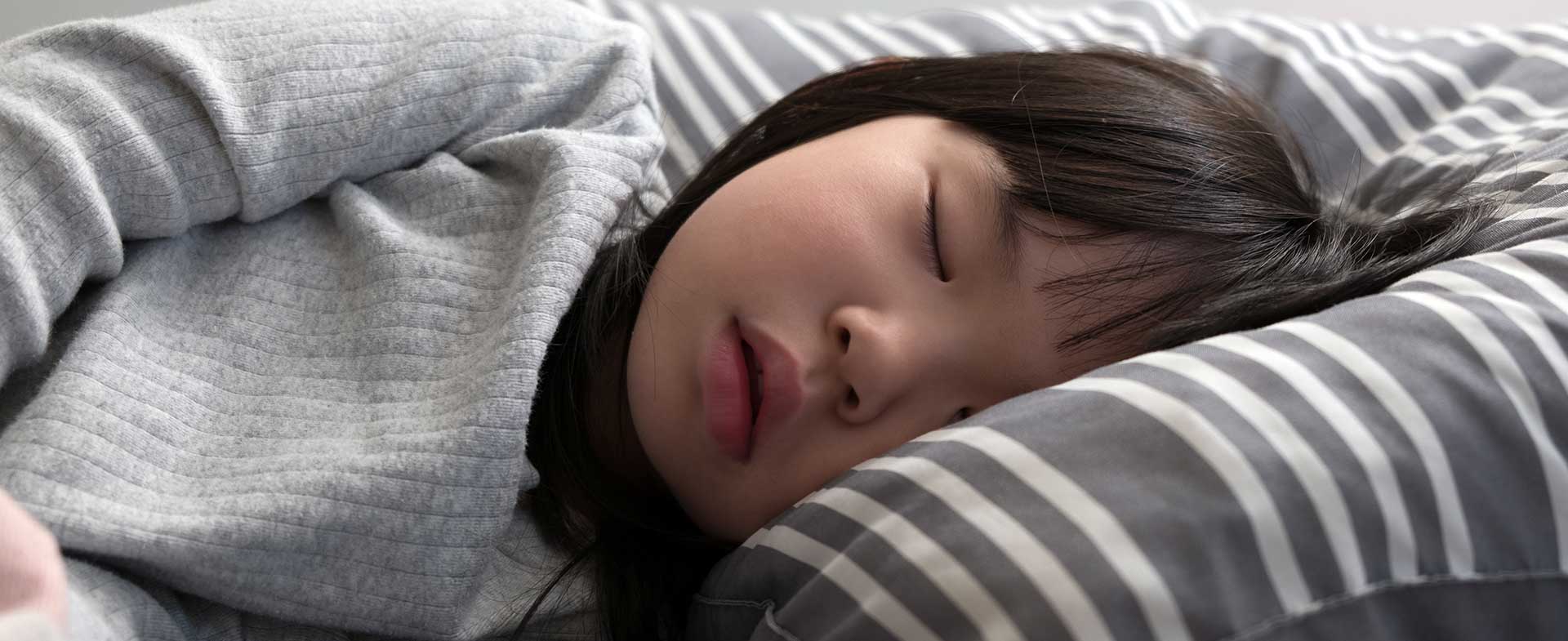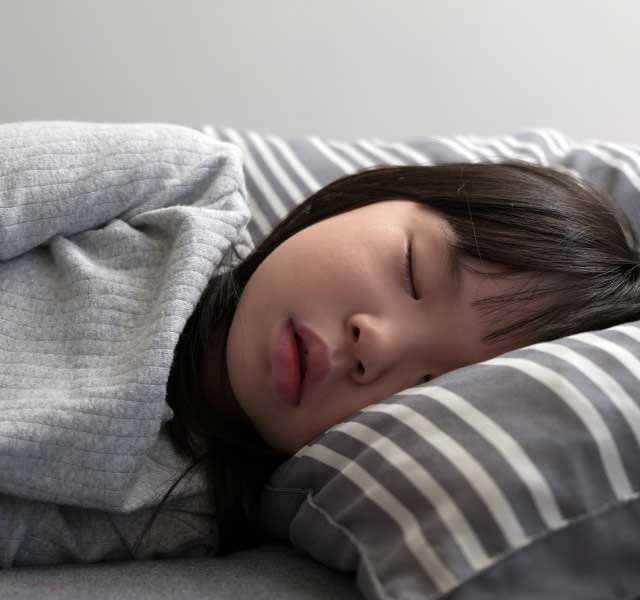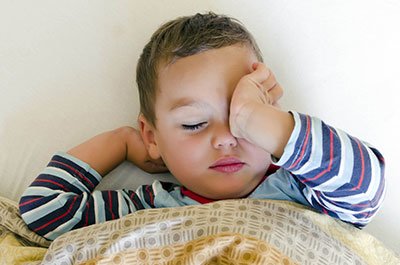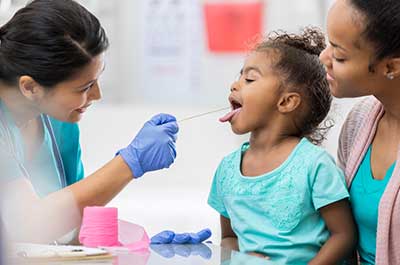When your child has sleep problems, chances are you’re not getting the rest you need either. Restless nights and cranky days are no fun for anyone. But a diagnosis of sleep apnea in your kid may not be the first thing that crosses your mind.
“Sleep apnea affects about 5% of kids,” says Andrea Plawecki, M.D., an otolaryngologist and sleep medicine specialist at Henry Ford Health. “But because it often looks very different than it does in adults, sleep apnea can be overlooked in children.”
What Causes Sleep Apnea In Kids?
The number one cause of obstructive sleep apnea in kids is large tonsils. “Children have very narrow airways,” says Dr. Plawecki. “If the tonsils are large, they can block the airway and lead to breathing pauses while a child sleeps.” Kids are most likely to develop sleep apnea between the ages of 2 and 10, when the tonsils grow the most.
In some cases, other factors can play a role in sleep apnea. An anatomical difference in the shape of a child’s face or jaw can sometimes cause an airway obstruction. A family history of sleep apnea can also increase your child’s risk of developing the condition.
In adults, obesity is a leading cause of sleep apnea. As the obesity epidemic affects more children, it can cause those kids to experience sleep apnea.
What Are The Signs Of Sleep Apnea In Kids?
Snoring is not very common among children. But it is one of the main symptoms of sleep apnea in kids. “If your child regularly snores—and snores very loudly—that’s a sign they may have sleep apnea,” says Dr. Plawecki.
Other nighttime symptoms of sleep apnea in kids include restless sleep, waking up repeatedly and even bedwetting (in children who are potty trained).
During the day, you might expect your child to be very sleepy. And daytime sleepiness is one of the main signs of sleep apnea in adults. “But in children, we often see exactly the opposite,” says Dr. Plawecki. “Children with sleep apnea often have behavioral issues, hyperactivity and difficulty concentrating.”
How Is Sleep Apnea In Kids Diagnosed?
If your child is having sleep issues, it’s best to have them evaluated by an ear, nose and throat (ENT) doctor or a sleep specialist. “If possible, look for a clinician who is experienced in recognizing and treating pediatric sleep apnea,” says Dr. Plawecki.

Pediatric ENT At Henry Ford
Your child’s doctor will ask about any symptoms—including nighttime snoring and restlessness as well as daytime behavior issues. They will also do a thorough physical exam, including checking the throat and tonsils.
If your doctor suspects your child may have sleep apnea, they may recommend an in-lab sleep study. This is when your child (accompanied by a parent) spends the night in a sleep lab for overnight monitoring. “It’s the best way to get an accurate diagnosis and determine the severity of the sleep apnea before deciding on treatment,” says Dr. Plawecki.
How Is Sleep Apnea In Kids Treated?
The most common treatment for pediatric sleep apnea is surgery to remove the tonsils and adenoids. “In about 75% of kids, this surgery is all they need to completely resolve their sleep apnea,” says Dr. Plawecki.
In the rare cases when surgery alone isn’t enough, your doctor will look for any secondary causes. “If there are other factors involved, such as obesity, we need to address those,” says Dr. Plawecki.
For otherwise healthy kids who still have some mild sleep apnea after having their tonsils and adenoids removed, additional treatment may not be necessary. “Watchful waiting to see if remaining symptoms resolve may be enough,” Dr. Plawecki adds.
Reviewed by Andrea Plawecki, M.D., an otolaryngologist and sleep medicine specialist who sees patients at Henry Ford Medical Center - Brownstown, Fairlane, New Center One, Plymouth and Templin.



